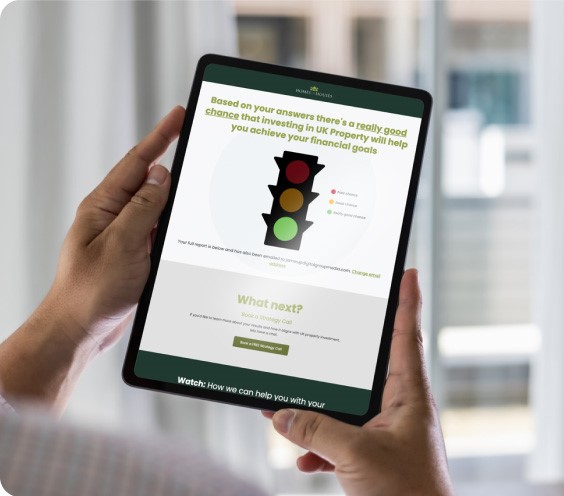Simplifying UK property investing for overseas investors, enabling…
Trusted Media have covered us:


Purchased property total
%

Are you an expatriate or foreign investor looking to source, purchase & let residential property in the UK?
We provide a complete and comprehensive service to UK Expatriate or Foreign individuals who are interested in acquiring UK property ranging from a single buy-to-let to a full portfolio. With over twenty years experience of investing in the UK property market, we have a network of partners and professionals who can take you from search to completion, from tenant management to sale, acting as your consultant throughout the process.
What We Do
Considering property sourcing in the UK to solidify your financial future? You’re not alone.
Many discerning investors, both UK expatriates and international enthusiasts, recognise the unparalleled potential the UK property market offers. Whether you aim to build a nest egg for retirement, secure an opulent family residence, cultivate a consistent income stream through a well-curated portfolio, or diversify your investment horizons, we understand and cater to your unique aspirations. With “Homes or Houses”, you’re not just exploring the UK property market — you’re ensuring your capital is strategically invested to amplify its growth potential.

I’d Like To…
Why Choose Us?
Our Process

FREE RESOURCE
Is UK Property Investment
Right for You?
Spend a few minutes to answer some simple questions which will help you to evaluate whether or not investing in the UK property market aligns with your financial goals.

Why Our Customers Love Us
Frequently Asked Questions
How does your service work?
Our service has multiple parts and is customised to you, therefore, if you are looking to invest in property, the first step is to get in touch. We will arrange a meeting with you by video or telephone, to allow us to understand your requirements and for you to understand our service. We have factsheets we can send to you (before the call), which summarise every step and allow you to be ready with questions. There is no charge for this initial consultation and usually it is a great way to decide whether property investment is right for you
What fees do you charge?
We charge 2.4 % of the negotiated property price but ONLY when you become the owner. We do not charge any fees upfront, even if the search for the right property takes time. We want you to be confident with your investment and a large financial decision of this type can take time. All other Purchase Fees (Legal) and Taxes (SDLT) are fully discussed with you at outset and all Refurbishment works (if required) or Property Management costs are discussed prior to making an offer on any property.
Can I change my mind about a property after the process has started?
Yes absolutely. We encourage investors to dig into the details and regularly we flag potential deal-breakers which may not be apparent until the purchase process has started, such as a negative point in a survey. As every property we source for our clients is different, we too are testing the suitability throughout the conveyancing process, we want success too!
Can you source finance for me?
Homes or Houses are not Finance or Mortgage Brokers. We can make a referral to those companies, we know, that specialise in overseas customers and investment properties if your own Bank cannot assist with UK property investment.
Will the property be in my name?
Yes. We facilitate an introduction to all of the professional services you will need ( Solicitors, Surveyors, Contractors etc) and act as your advocate to ensure evert t is crossed and every i is dotted, BUT, all contracts are between you and the professional service provider, the most important being the ownership of the property itself. Although we will review everything for you, your confirmation of your final review, understanding and signature is required.
What happens after I own the property?
We stay with you as your Property Agent and assist you in the appointment of all property management services and rent collection.
We outsource the financial element of Property Investment to regulated companies to take care of each of your property’s income and expenditure in a way that makes it simple to understand monthly statements and to pass the information to an accountant annually for tax purposes
We provide services for Tenant Sourcing, reference checking, move in/out, maintenance, outsourcing to specialists where required, but maintaining our advocacy role with you, we will continue to be your one point of contact
Can I buy more than one property?
There is no limit on how many properties you can purchase in the UK, as an expatriate or a foreign national. But if you are our client, we recommend you buy your first property, experience the full process and letting of the property and if you are happy with the outcome, move on to building your portfolio. All our clients start this way and some build 20/30 properties over time, we always discuss your long term aims and set a plan to help you all the way
Can you find property for me all over the UK?
We specialise in the Northeast region of England, which, as well as being the most affordable area in England, also has a diverse range of opportunities from 1 bed apartments, to student accommodation (5 universities), to large family homes and even blocks of apartments for the more seasoned investor.
If you already have property elsewhere in the UK, we do have a bespoke ‘Manage the Manager’ service, where we can assist you in having one contact point making your reporting and administration significantly easier, let us know and we can provide further details for you
Success Story
Transforming Challenges Into Profitable Investments in Newcastle
Discover Linda's remarkable journey from the Middle East to the UK property market.
In 2014, she embarked on a strategic partnership with us, navigating complex market dynamics to acquire a family-focused bungalow and lucrative apartment blocks in Newcastle.
Our case study reveals how innovative strategies transformed these investments into substantial gains.

Meet The Team

Jackie Fitzgerald

Michael Collins
Latest News

Financial Foresight for Expatriates – An Interview With Stuart Porter
Homes or Houses founder, Jackie Fitzgerald, sits down for a conversation with Stuart Porter FPFS, a renowned Chartered Financial Planner and expert in UK financial planning, focusing on strategies for expatriates. In this interview (which will be the first of many...

How Do I Make A Profit From Property Investment?
In the dynamic world of property investment, opportunities for profit abound, but so do the risks. We delve into four key strategies – flipping, off-plan investment, auctions, and motivated sellers – each with its unique set of challenges and rewards. Flip Finding a...

Costly Red Flags when Investing in Property
When we source properties for our clients, we pay real attention to the details that can be 'seen' as these could be indicators of immediate issues, (poor finishing in fixtures and fittings - gaps, cracks, mismatching items etc). Although not costly to repair, these...
Have a question?
Jackie and the team would be more than happy to help


Get In Touch


